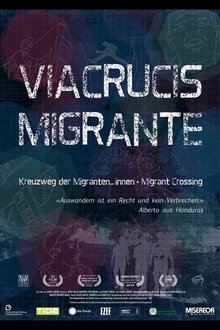A "loose-knit" community of crypto-anarchists emigrate to Acapulco, a city recently ranked as the fourth most dangerous in the world, to escape the powers of nation-states. But several years later, the group diverges into to different visions of liberty.
Related Movies
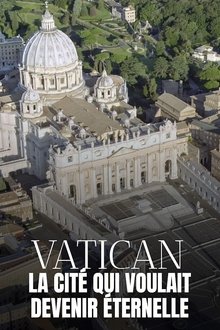
The Untold Story of the Vatican (2020)
What started as a simple tomb became over a 2,000 years history the universal seat of Christendom and is today one of the most visited museum in the world with invaluable collections of Arts, Manuscripts, Maps. Using spectacular 3D modelisation and CGI to give viewers as never before a true understanding of the history of this architectural masterpiece and its extensions, the film will also use animation to tell relevant historical events. This heritage site reveals new untold secrets with the help of historians deciphering the Vatican’s rich archives and manuscripts collection and following the restorations at work (newly discovered frescoes by Raphael) and recent excavations. A story where Religion, Politics, Arts and Science meet to assert religious authority and serve as a spiritual benchmark.

Songs of Injustice: Heavy Metal Music in Latin America (2018)
In this documentary film a team of researchers examine the social contexts that influenced the emergence and permanence of heavy metal music in Chile, Argentina, Mexico and Peru. Colonialism, dictatorships, terrorism and neoliberal exploitation serve as points of reference for how heavy metal in the region has been directly linked to each country's social and political context.
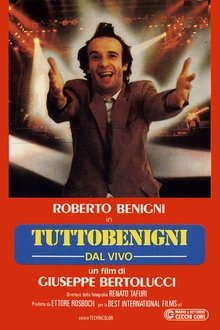
Roberto Benigni: Tuttobenigni (1983)
A young Roberto Benigni in one of his first public show in Florence at Parco delle Cascine.

A Meeting with Milton Santos (2007)
The film deals with the process of globalization based on the thought of geographer Milton Santos, who through his ideas and practices, inspires the debate about Brazilian society and the construction of a new world. Santos discusses his views on the importance of respecting difference and his belief that an alternative globalisation model could wholly enfranchise all citizens of the world. An illustrious presence in 20th century social sciences, the man dubbed as ‘geography’s philosopher’ eloquently elucidates a developing world perspective on the global age.
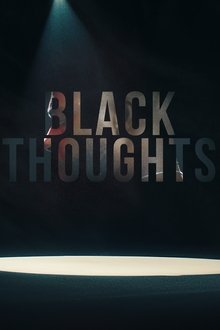
Black Thoughts (2020)
A man that is a stranger, is an incredibly easy man to hate. However, walking in a stranger’s shoes, even for a short while, can transform a perceived adversary into an ally. Power is found in coming to know our neighbor’s hearts. For in the darkness of ignorance, enemies are made and wars are waged, but in the light of understanding, family extends beyond blood lines and legacies of hatred crumble.
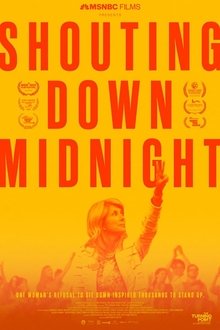
Shouting Down Midnight (2022)
Both cautionary tale and rallying cry, Shouting Down Midnight recounts how the Wendy Davis filibuster of 2013 galvanized a new generation of activists and reveals what is at stake for us all in the struggle for reproductive freedom.

The Political Life of the Belgians (2002)
We follow the build-up and training of two opposite Belgian political parties. We see their leaders during meetings, during voting and after when the results of the elections are published.

Britain's Racist Election (2015)
Channel 4 documentary Britain's Racist Election follows the controversial 1964 Smethwick election battle between Peter Griffiths and Gordon Walker, fought on grounds of racial denomination
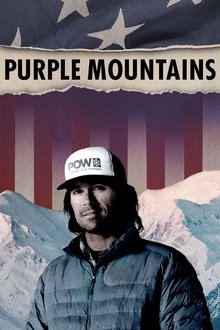
Purple Mountains (2020)
Professional snowboarder and mountaineer Jeremy Jones has an intimate relationship with the outdoors. It’s his escape, his identity, and his legacy. But over the course of his 45 years in the mountains, he’s seen many things change: more extreme weather, fewer snow days, and economic strain on mountain towns. Motivated by an urge to protect the places he loves, Jeremy sets out on a physical and philosophical journey to find common ground with fellow outdoor people across diverse political backgrounds. He learns their hopes and fears while walking a mile in their shoes on the mountain and in the snow. With intimacy and emotion set against breathtaking backdrops, Purple Mountains navigates America’s divide with a refreshing perspective: even though we may disagree about climate policy, our shared values can unite us

Looking for Melania Trump (2020)
Melania is both an ideal symbol of a conservative America and the evil embodiment of limitless ambition. Political journalist Laurence Haïm has observed her for the past years and is able to reveal a much more complex part of the personality and life of the mysterious lady. For some, Melania Trump is an unscrupulous trophy wife on the arm of the most powerful man in the world. For others, the First Lady embodies with distinction the conservative woman, the unwavering wife in the service of her husband. For all, she remains inaccessible and secretive, a woman whose public appearances are heavily prepared and scripted. In the time of ‘Me too’, let us take a dive into conservative America, discover another side of feminism impersonated by none other than Melania Trump.

Borderland Blues (2017)
„The Frontier“ or „La Frontera“ is the undulating landscape of the Sonora Desert in Arizona, which once was a symbol of freedom on the horizon of the American West – and also a region plagued by recurrent territorial struggles. Currently, a high steel fence stretches over several miles strictly separating the USA and Mexico into two territories. Every year, the remains of hundreds of migrants are retrieved from the area. The tense situation in Arizona’s borderland has split the locals into two groups: one demanding a more technically advanced border control system, the other requesting more humanitarian help. Accompanying various locals, NGO workers and self-proclaimed border guards from the region, filmmaker Gudrun Gruber raises the question of whether the latest border control technology will finally bring peace to the area, or rather merely increase the number of deaths.

Hard Border (2018)
Belfast-born actor Stephen Rea explores the impact of Brexit and the uncertainty of the future of the Irish border in a short film written by Clare Dwyer Hogg.
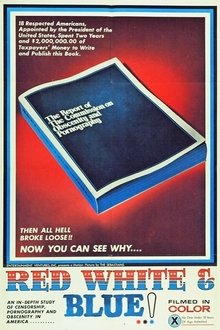
Red, White and Blue (1971)
A documentary about the hearings of President Nixon's Commission on Obscenity, featuring adult-film producer David F. Friedman (one of the producers of this film) testifying before Congress, and involved in the production of one of his films, "Trader Hornee."

Ammunition Smuggling on the Mexican Border: Incidents of the Mexican Revolution (1914)
Around the film hang fascinating questions about border politics, which I’ll touch on in an introduction before the screening. One of Eugene Buck’s motivations for making the film may have been his rough cross-examination during his kidnappers’ first trials, in October 1913, when defense attorneys cast him as a confused and unreliable witness against idealistic freedom fighters. On film he could reproduce the pursuit, the shootouts, his kidnapping, and his friend’s murder just as he had testified. Reenacting the crime on film may have been the best revenge—and a way to honor the sacrifice of Deputy Ortiz, a twenty-year police veteran and, for the era, a rare Mexican American lawman.
